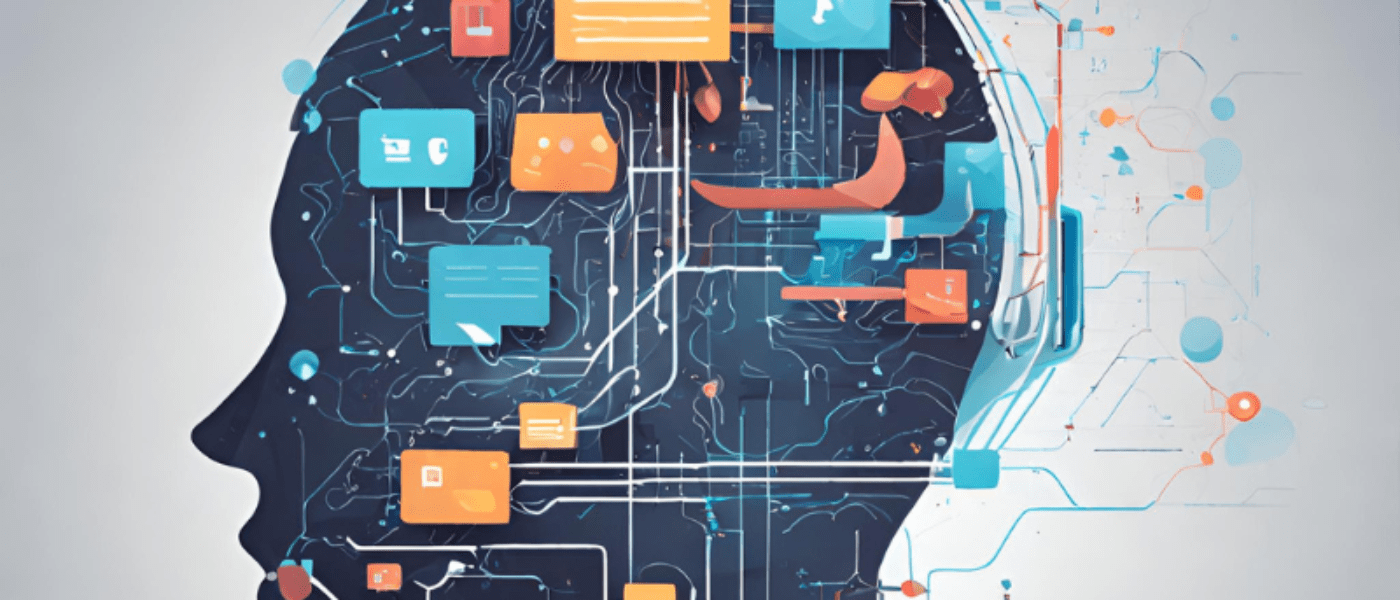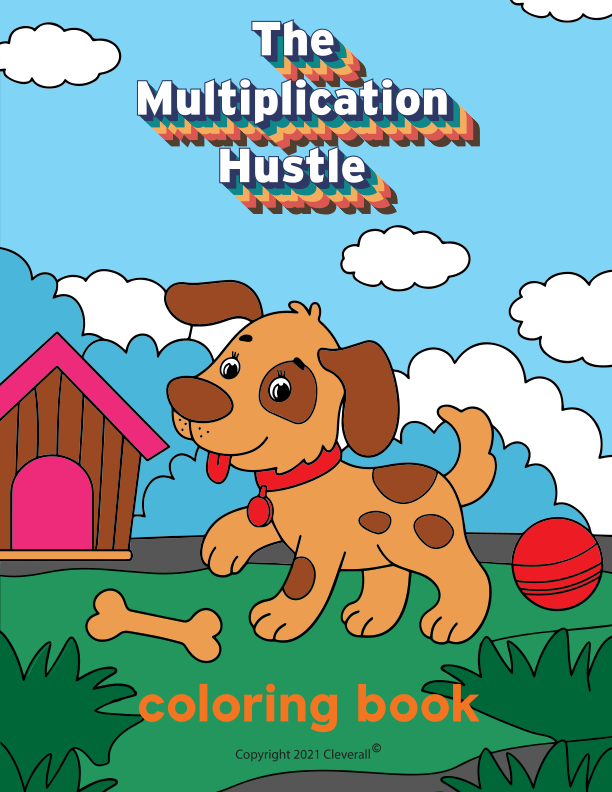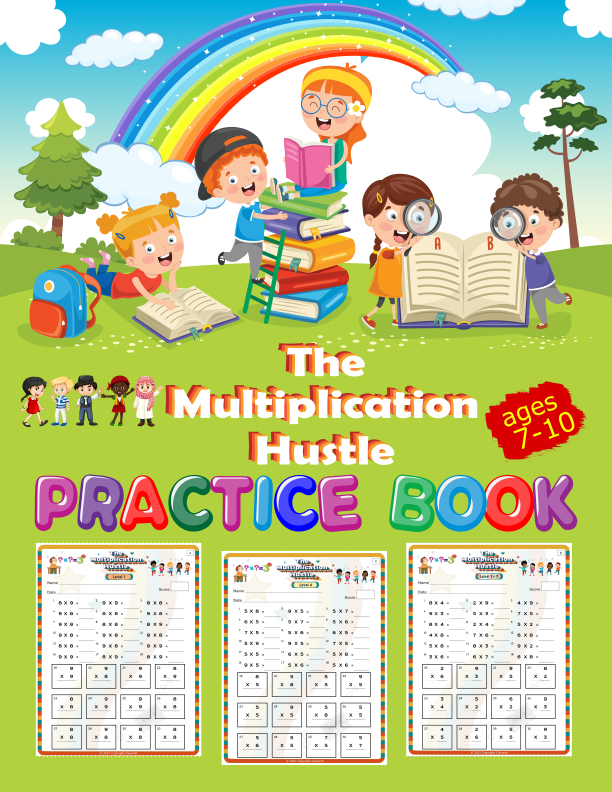The Promise of AI-Adaptive Learning
So, what’s the deal with AI Adaptive Learning? Picture this: you’re in a classroom, but instead of snoozing through a one-size-fits-all lecture, everyone’s totally into what they’re doing. Why? Because AI Adaptive Learning is like having a personal teacher for each student, changing the game in education.
AI Adaptive Learning utilizes artificial intelligence to create personalized educational experiences, adapting content and pace to individual learner’s needs and progress. It then fine-tunes the content, speed, and complexity of the material, making sure it’s just right for each student’s abilities and learning style.
It’s like a chameleon, constantly adjusting to your strengths, needs, and likes. Whether you’re a bit behind or way ahead, it’s got your back, making sure you get just what you need to ace it.
Gone are the days when everyone had to trudge along at the same pace. Now, with AI Adaptive Learning, if you’re struggling, you get the extra help you need to catch up. And if you’re breezing through? It throws in a few curveballs to keep you on your toes. It’s like having a learning path with your name on it, constantly evolving just for you.
But wait, there’s more! AI isn’t just about keeping pace; it’s like your personal content DJ, spinning up custom resources, activities, and even suggesting new stuff to learn. You get what you need, exactly when you need it, keeping you hooked and on track. And teachers? They’re like conductors in this high-tech orchestra, focusing on guiding and connecting with students, while the AI takes care of the nitty-gritty.
In short, AI Adaptive Learning is turning classrooms into buzzing hubs of personalized, effective, and really cool learning. It’s like each student has a secret weapon, unlocking their full potential and shaking up how we think about education. The future is here, and it’s tailor-made for every learner’s success. Now, that’s what I call a classroom revolution!
AI Adaptive Learning vs. Adaptive Learning
Let me take an opportunity to highlight the difference between AI adaptive learning and “traditional” adaptive learning. All adaptive learning systems aim to personalize the learning experience to each individual’s needs, but AI-powered adaptive learning takes it a step further by using artificial intelligence to make more sophisticated adjustments. Here’s a breakdown of the key differences:
Traditional Adaptive Learning:
- Uses data on students’ performance, such as quiz scores and completion times, to adjust the learning path.
- Relies on pre-defined rules and algorithms to determine how to adapt the learning experience.
- Can personalize the difficulty level, content sequence, and feedback to some extent, but may not be able to account for individual learning styles or preferences.
AI-powered Adaptive Learning:
- Leverages artificial intelligence techniques like machine learning and natural language processing to analyze a wider range of data, including student interactions, emotions, and learning styles.
- Can create highly personalized learning paths that cater to individual strengths, weaknesses, and learning goals.
- Can anticipate students’ needs and difficulties and adjust the learning experience accordingly before they even encounter them.
- Can continuously learn and improve its algorithms based on the data it collects, leading to even more effective personalization over time.
Here’s an analogy to illustrate the difference:
Traditional adaptive learning: Imagine a teacher who adjusts the difficulty of the homework based on each student’s previous test scores.
AI-powered adaptive learning: Imagine a tutor who not only adjusts the difficulty but also explains concepts in different ways, provides personalized feedback, and recommends additional resources based on your individual needs and learning style.
The Magic of AI-Adaptive Learning

Imagine having a personalized tutor that knows your strengths, gaps, interests and learning style better than you know yourself. A tutor that follows your progress moment to moment, bringing you the right content at the right time in just the right way. This is the magic of AI-adaptive learning. It blends the timeless art of teaching with the limitless potential of artificial intelligence.
At its core, AI-adaptive learning is like having an all-knowing tutor for each student. But instead of a human, it’s powered by sophisticated algorithms that tune educational experiences specifically for each learner. This goes far beyond a one-size-fits-all approach. The technology monitors a student’s advancing mastery, dynamically adjusting pace, activities, content and support along an optimal path for that student.
Struggling learners get remediation and alternative approaches to close knowledge gaps. Quick learners are challenged with extensions and enrichments to go deeper. Learning objectives and modalities are adjusted in real-time based on continuous diagnostic assessment. The result is a responsive environment where learners are guided down unique learning pathways tailored to how they learn best.
Teachers gain supercharged capabilities to provide guidance, human connection and mentoring within this powerful framework. The possibilities are expansive. AI-adaptive learning promises to make education profoundly personalized, engaging students at their level, honoring different learning needs, and helping each person achieve their potential. It’s like having a magic tutor that knows you better than you know yourself. This is the transformative power of AI.
The Science Behind AI-Adaptive Learning
Continuous Diagnostic Assessment
At the core of AI-adaptive learning are sophisticated algorithms that perform continuous diagnostic assessment. As students engage with educational activities, the system analyzes their responses in real-time, evaluating mastery of learning objectives. By tracking progress moment to moment, it builds an increasingly detailed profile of each learner’s strengths, gaps, misconceptions and learning style. This constant flow of granular diagnostic data enables the system to adjust to each student’s evolving needs.
Dynamic Adjustments
Armed with detailed data from ongoing assessments, AI-adaptive learning platforms leverage machine learning algorithms to dynamically adjust the learning experience. The system can modify sequence, pace, content and modality for each student individually]. Struggling students may be presented with remediation, alternate explanations, or low-stakes retrieval practice to close knowledge gaps. Quick learners are challenged with extensions like additional examples, research opportunities, or creative problem solving activities.
Optimized Learning Pathways
The result is an AI-driven learning optimization engine that guides each student along a personalized pathway tailored to the way they learn best. By leveraging the power of artificial intelligence to understand and respond to each individual, AI-adaptive learning has the potential to make education more equitable, engaging, and effective on a global scale. The sophisticated algorithms work tirelessly as virtual tutors, constantly finding the right next step for real-time adaptation.
Empowering Human Connections
While AI handles real-time adjustments, teachers are empowered to provide mentorship, motivation and human connection within an AI-adaptive learning framework. The technology offloads routine tasks and data analysis, enabling educators to focus on higher value interventions that can make a profound difference for students.
Real-Life Examples of AI-Adaptive Learning in Action
AI-enabled adaptive learning is revolutionizing the education system by personalizing the learning experience for each student. This innovative approach leverages data analytics and machine learning algorithms to assess students’ weaknesses and learning patterns, dynamically adjusting the educational material’s content, pace, and difficulty level to suit the learner’s needs and abilities.
Check out The AI Teaching Revolution: Exploring How Artificial Intelligence is Used in Education for ideas on how AI Adaptive Learning can be used in your classroom.
Good examples of AI-enabled learning environments include intelligent tutoring systems, adaptive learning systems, and recommender systems. One real-life example of AI-powered adaptive learning in education is the application Duolingo, which combines machine learning and adaptive learning to provide personalized language learning through gamification and adaptivity. The software tracks various information such as the number of times a word is seen, mistakes in specific topics, and the topics and phrases the learner knows best, using AI to predict the probability of word recall in a given context.
Adaptive learning in education is also exemplified by the use of AI in learning management systems (LMS) to provide personalized content for learners and to understand which topics need more focus. The system applies multiple algorithms to meet the student’s needs, and it is expected that AI in the educational market will grow at a compound annual growth rate (CAGR) of over 40% by 2027. Another practical application of AI-enabled adaptive learning is its use in eLearning platforms, where it can be leveraged to provide personalized learning paths and course content based on learner analytics, as well as to increase or decrease the difficulty level of the course content based on the competency level of each learner.
AI-enabled adaptive learning is being effectively applied in various educational settings, from language learning applications to learning management systems and eLearning platforms. These real-life examples demonstrate the potential of AI to personalize and enhance the learning experience for students, making education more engaging and efficient.
Notable AI Adaptive Innovations to Watch
In the dynamic realm of educational technology, two initiatives – Yourika and its product Smart’n – stand out for their innovative use of AI in personalized learning.
Yourika is changing education with AI. It uses a smart system to analyze how students learn, finding out what they’re good at and what they need to work on. This technology then adjusts the lessons for each student, making sure everyone gets a learning path that’s just right for them. Yourika’s AI helps teachers too, giving them useful information about how each student is doing.
Smart’n, created by Yourika, is all about helping nursing students get ready for their exams. It has lots of practice questions and real-life examples to prepare students for what they’ll face in the NCLEX-RN test. The platform tailors quizzes to each student’s progress and focuses on the areas they need to improve. It’s designed to save time and reduce stress, making sure students study the right things. Smart’n can even predict how likely a student is to pass their exam, which is a big help in studying more effectively. Plus, Smart’n is made to be affordable for students.
Together, Yourika and Smart’n are Changing Education
Yourika and Smart’n work together to bring personalized, efficient learning to students. While Yourika provides the smart AI technology, Smart’n applies it specifically to nursing education. This combination shows how technology can be used to meet the unique needs of every student. It’s a big step forward in making education better and more tailored for everyone.
What are the Benefits and Challenges
AI-enabled adaptive learning offers a myriad of benefits, including personalized learning experiences, improved student engagement, and enhanced learning outcomes. By dynamically adjusting the content, pace, and difficulty levels based on individual needs and abilities, AI fosters a positive and dynamic learning environment, ultimately boosting students’ confidence and supporting diverse learning groups. This personalized approach not only caters to students’ unique learning capabilities but also provides real-time feedback, identifies knowledge gaps, and offers customized resources, thereby improving the overall learning experience.
However, the integration of AI in adaptive learning also presents several challenges. Ethical and privacy concerns regarding data usage and storage, as well as the potential for biases and errors in AI algorithms, are significant challenges that need to be addressed. Moreover, the digital divide, which encompasses unequal access to technology and the internet, poses a challenge in ensuring equitable implementation of AI-enabled adaptive learning across all student populations. Additionally, there is a growing need for comprehensive teacher training to effectively integrate these systems into the educational landscape, ensuring that educators possess the necessary technical and pedagogical skills to design, implement, and monitor adaptive learning systems.
While AI-enabled adaptive learning holds immense potential to transform the education system, it is essential to address the associated challenges, such as privacy concerns, biases in algorithms, the digital divide, and the need for teacher training. By mitigating these challenges, educational institutions can harness the full benefits of AI in adaptive learning, ultimately providing a more inclusive, personalized, and effective learning experience for all students.
Realizing the Potential: AI-Adaptive Learning for the Future

AI-adaptive learning represents a new frontier in education, harnessing the power of artificial intelligence to profoundly personalize instruction. As this technology continues evolving, it promises to make learning more equitable, engaging, and effective for all. However, realizing the full potential will require ongoing research, thoughtful implementation, and a human-centric approach.
Educators play a vital role in this future by providing guidance, emotional support, and mentorship within AI-driven frameworks. We must continue exploring ethical applications of student data and AI algorithms to avoid biases. Policymakers need to address the digital divide and other barriers to access. But the possibilities are truly exciting. soon, classrooms could become vibrant hubs of personalized discovery, with each student confidently progressing on their unique path.
AI-adaptive learning gives us an opportunity to innovate education from the ground up – to not just replicate the status quo, but reimagine what student-centered learning could look like. This technology is still in its infancy, but it will continue rapidly advancing. By maintaining high standards and centering human needs, we can realize the full potential of AI-adaptive learning – expanding knowledge and empowering minds around the world. The future is here if we forge it thoughtfully.
How are you using AI Adaptive Learning? Our readers would love to hear how you are using AI in your classroom. Please share and help improve education across the nation.
FAQ Section:
- What is AI-Adaptive Learning? AI-Adaptive Learning utilizes artificial intelligence to create personalized educational experiences, adapting content and pace to individual learner’s needs and progress.
- How does AI-Adaptive Learning work? It uses algorithms to analyze student data like performance, preferences, and learning patterns, adjusting the learning path in real-time for optimized instruction.
- What are the main benefits of AI-Adaptive Learning? Key benefits include personalized learning pathways, increased student engagement, and enhanced learning effectiveness.
- What challenges does AI-Adaptive Learning face? Challenges include addressing ethical and privacy concerns, overcoming the digital divide, and ensuring educators are adequately trained to integrate these systems.
- Can AI-Adaptive Learning improve student motivation? Yes, by offering personalized and engaging content, AI-Adaptive Learning can significantly enhance student motivation and interest in the subject matter.
- Are there psychological impacts of AI-Adaptive Learning on students? Yes, it can impact students’ confidence and stress levels, either positively by providing tailored support or negatively if it leads to overreliance or increased pressure.
- How does AI-Adaptive Learning affect the role of teachers? It transforms teachers’ roles, allowing them to focus on mentorship and guidance while AI handles personalized content delivery and assessment.
- Is AI-Adaptive Learning accessible to all students? Accessibility varies; addressing the digital divide is crucial to ensure that all students have equitable access to AI-Adaptive Learning tools.
Intellect Initiated, Ingeniously Improved by AI’s Inventive Ingenuity


